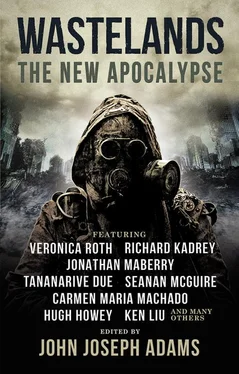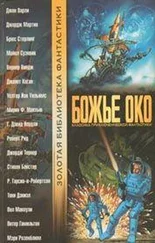“Give me control!”
“There will be other attacks.”
“You shouldn’t even be here. You lied to me about the shield.”
Casey seized the side stick and pressed her feet to the rudder pedals, fighting the Surrogate for control. She hadn’t realized the robot could lie. That made it almost human. A warning light flickered, and something streaked up from the desert. The Surrogate wrenched the ship over, but the projectile clipped the starboard wing, and the ship barreled out of control. Sky and Earth swapped relative positions. Casey grasped the stick in a death grip. Despite that, the Surrogate established a semblance of stable, albeit inverted flight, rolled again for straight and level, and compensated for the loss of starboard thrust.
“Casey Stillman, let go, please.”
Casey released her grip and watched the displays. Hydraulic pressure dropped steadily on the starboard wing. The strike had severed a line. Worse, battery levels had plummeted, an emergency reflected in the off-key whine of the big electric turbine on the port side.
The ship wallowed toward the ground.
“We’re going to crash!” Casey’s heart was racing.
“I am managing it.”
The remains of a town passed below them. The VTOL, rocking and swaying under depleted power, traveled another mile. A landing pad came into view. The Surrogate angled them toward it, dumping two hundred feet of altitude before rearing back and engaging sputtering vertical thrust. The ship teetered on the edge. Casey tensed her body for impact. In the next moment the undercarriage absorbed the bone-rattling jolt of touchdown. Casey looked up. They had landed fifty yards short of the pad.
The instrument panel displayed the red lines of overtaxed and underpowered systems, and then the display went dark.
Casey popped the canopy. “Don’t say it.”
“Don’t say what?”
“That if I’d kept my hands off the controls we wouldn’t have been hit.”
The Surrogate reverted to hummingbird wings.
Casey unbuckled her restraints and turned around, kneeling on her seat. The Surrogate’s blank face regarded her. “Damn it. Not saying anything is the same as saying it.”
“I could have avoided the attack, yes.”
“I knew you couldn’t resist rubbing it in.”
She climbed down to inspect the damage. Hydraulic fluid dripped on Casey’s boot. A piece of the starboard wing’s trailing edge was missing, a ragged bite taken by the projectile. If the VTOL had been running on jet fuel instead of electricity, it would have exploded. As it was, shrapnel had penetrated the fuselage and damaged the battery array. Maybe the Surrogate could repair the wing, but without power, they were stranded. “I will effect repairs,” the Surrogate said.
“What about—”
“The repair procedure will render me helpless. So you will get your opportunity to pilot us back to base. You will have to manually deactivate the barrier. I will provide instructions. Don’t do it too soon, or the weapons will gain access ahead of you. Don’t wait too long, or you may misjudge the approach and destroy us.”
“How long will repairs take?”
“Estimated three hours.”
“I’ll be back by then.”
“Don’t go, please.”
From the stowage compartment Casey retrieved a pulse rifle, a sidearm, and a flashlight.
“Without me, your survival is questionable,” the Surrogate said.
“Thanks for the vote of confidence.”
But the robot was already dismantling the starboard aileron assembly.
* * *
Casey hiked up the steep terrain to the blast-door. She stayed off the road, using the trees for cover. Her boots swished in the undergrowth. She held her rifle at the ready, knowing it wouldn’t do her much good if weapons attacked her. Once upon a time, her mother had given her a tour of the Doomsday Vault. Casey had only gone because it was so rare that her mother invited her anywhere . “You’re so busy with your career,” she told Casey, neatly reversing the situation. Casey hadn’t been the one “too busy” for her mother.
Standing before the cryostasis capsules, Casey’s own lifelong position as a daughter-in-stasis did not fail to ring ironic bells. As an Important Person, one of the world’s top researchers in genetic engineering, Casey’s mother had spent most of Casey’s childhood somewhere outside Casey’s childhood. Maybe that’s why the little-red-wagon memory was so important.
At first glance the blast-door appeared intact, a slab of thick steel recessed under a brow of granite. Casey studied it from the trees. Something wasn’t right. Finally, Casey bit down hard on her lip, burst out of the trees, and ran to the door. Nothing attempted to stop her. In a moment, she understood why. From the trees, she hadn’t seen that the door’s magnetic locks had failed, probably as a result of the cyber attack two years ago. A narrow gap presented itself. She hooked her fingers around the edge, and hauled on the door until the gap widened sufficiently for her to squeeze through.
Inside, daylight fell in dusty shafts from the shattered ceiling.
Daylight.
High above, where Casey had been unable to see it, an explosive discharge had ripped open the mountain. Just as the Surrogate had assured her, the weapons had long ago destroyed the Doomsday Vault. Casey’s hope vanished like the mirage it had always been, something to crawl toward in a desert of regret and loneliness. For years, Casey had imagined the cloned embryos, tiny quick-frozen shrimp sealed in cryogenic capsules, buried deep behind impenetrable walls. She had imagined her mother.
Casey unclipped the flashlight from her belt, found stairs, and descended to the cryo vault. She had to be sure. Twenty minutes later, she was.
The embryos were all dead.
Her mother was dead. Again. Of course, it wouldn’t have been her mother, just her genetic potential, her familiar features. Casey would have nurtured the potential in her own virgin womb, would have raised the child behind the force shield, and perhaps she would even have sat with her and told her a fairy tale about the Moonites coming back to Earth.
Casey sat on an iron beam that had partially melted and crashed down. Alone in the dark, she felt the weight of her life, like the weight of the mountain. What else had she expected? The Surrogate had been right, again. The cryo vault was another gun, a thin excuse for a suicide mission. Casey wiped her eyes and stood up. How could a robot know her better than she knew herself? In symbiosis, its algorithms had deciphered the mystery of Casey’s own secret intentions.
She began climbing stairs.
* * *
The Surrogate had cannibalized itself to repair the ship. Hollow rods from its legs completed the broken linkages in the starboard aileron assembly. Unused rods and couplings lay in the wing’s shadow, like discarded turkey bones. The hydraulic line had been welded, but what good would that do without fluid in the reservoir?
Using only its arms, the Surrogate had pulled itself back to the cockpit, where it sat bolt upright in the pilot’s seat, strapped in place.
“Okay,” Casey said. “You were right about the cryo vault. Satisfied?”
The Surrogate did not reply.
Casey hauled herself up to the cockpit. The Surrogate had patched a line from its own body and drained itself of fluid, giving the wing reservoir a blood transfusion. A thin cable led from the Surrogate’s chest through a new hole in the firewall to the batteries. Casey toggled the power on. Battery levels jumped to ninety-six percent. But the surrogate was inert. Even the hummingbird was still.
A different emotion supplanted all the others roiling inside Casey, an emotion she had once felt acutely and then spent years suppressing.
Читать дальше


![Nick Cracknell - The Quiet Apocalypse [= Island Zero]](/books/28041/nick-cracknell-the-quiet-apocalypse-island-zero-thumb.webp)









